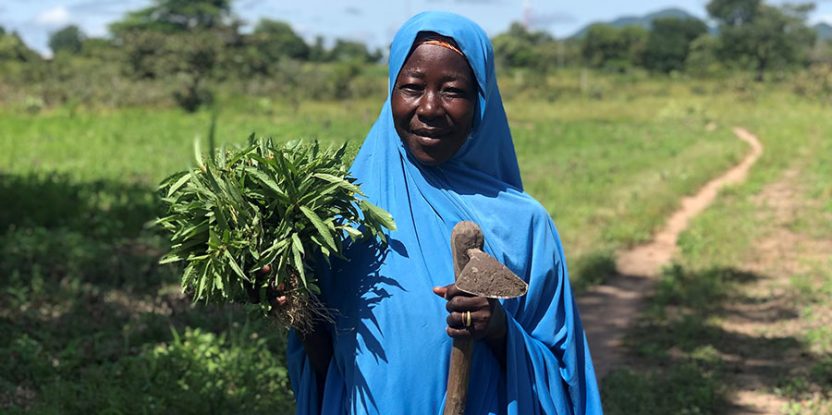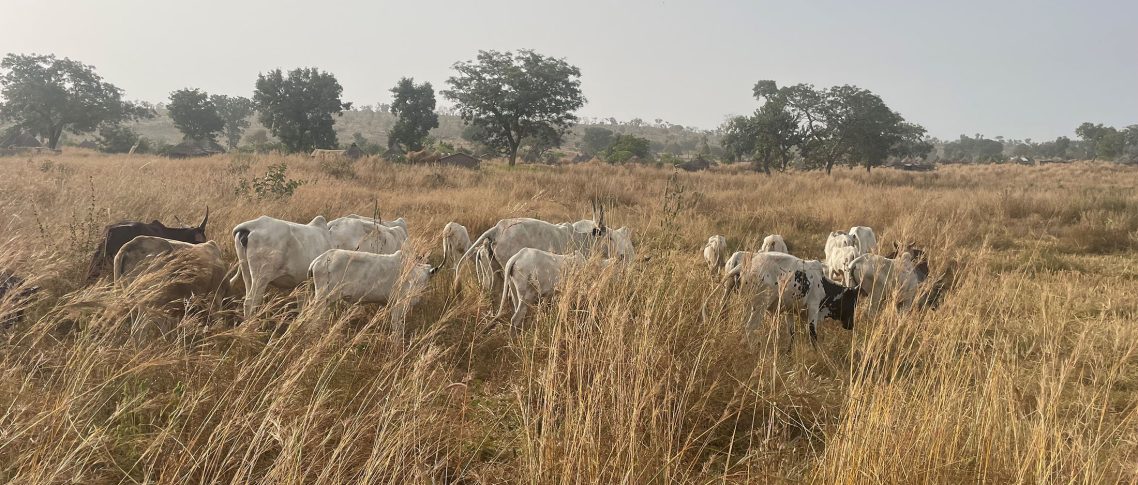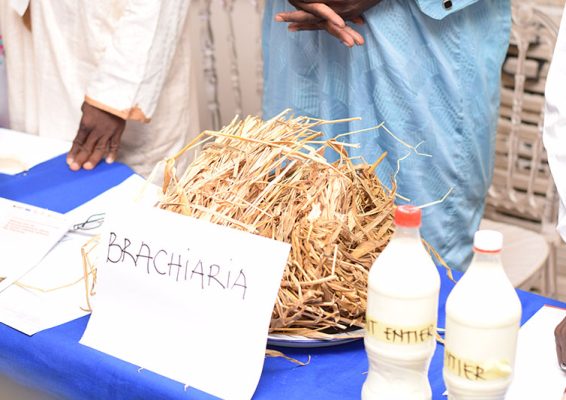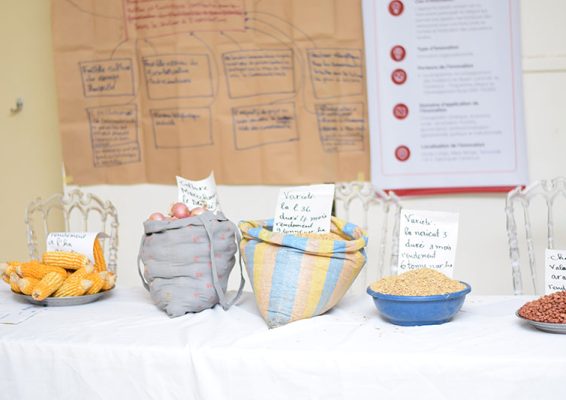Innovation is a crucial process for the development of agriculture, which can help it to meet the growing challenges of the 21st century. It takes many forms, from improved cultivation techniques to cutting-edge technologies and new organizational and marketing models.
A key concept in agricultural innovation is that of innovation niches, which refer to “a space where a group of actors experiment with technical, organizational or social innovations with the aim of solving or anticipating a common problem,” said Syndhia Mathe, French Agricultural Research Centre for International Development (CIRAD) focal point for the Strengthening Innovation Systems in North Cameroon (ReSI-NoC) project. “It’s a geographical space in which an innovation is born, developed and co-constructed with different actors who ensure its emergence and development.”
Such niches refer to groups of people (farmers, researchers, companies, NGOs, etc.) that rally around a specific innovation to develop, test and disseminate it. They are characterized by strong collaboration and knowledge sharing, which are essential for their success.
However, it is not always guaranteed that an innovation will be sustained after the initial project that brought it about has come to an end, especially in regions like North Cameroon. To ensure the survival of such innovations, the people involved must be trained to work together sustainably. This means developing skills in communication, collaboration, project management and leadership: the mission that ReSI-NoC has been tackling for just over three years in northern Cameroon, where several projects have succeeded one another over time, promoting technical and technological innovations that contribute to the sustainable development of agrosilvopastoral systems.
Based on the innovation system concept, which explains how to support innovations at several scales, the project team has identified the benefits of working on this innovation niche scale. One of the major findings of recent research into innovation niches is the need to strengthen their technical and, most importantly, organizational capacities. The latter relate to leadership, collective action, and planning – sometimes referred to as ‘soft skills’ – that enable actors to adapt to changing contexts. Such skills are particularly key in contexts where innovations are initiated as part of projects that may come to an end, as they enable niche players to adapt to new situations and seek solutions to maintain the innovation momentum they have created – for example by identifying new forms of funding.
At its inception, ReSI-NoC identified more than sixty innovation niches that were more or less active in Northern Cameroon. Of the 60 niches identified in the northern region, 12 were characterized and eight (8) were selected for support according to the project’s three intervention zones: near protected areas, around Garoua and in the cotton frontiers. The niches supported include the Tcholliré public awareness system for the protection and management of natural resources and biodiversity, land tenure security in Lagdo, climate-smart agriculture in Poli/Pintchoumba, environmental education in Poli/Béka (Tchamba), the Ngong watershed approach, transhumance in Lagdo, climate-smart agriculture in Koza II in the municipality of Touroua and the shea butter value chain in Mbé/Ngahan.
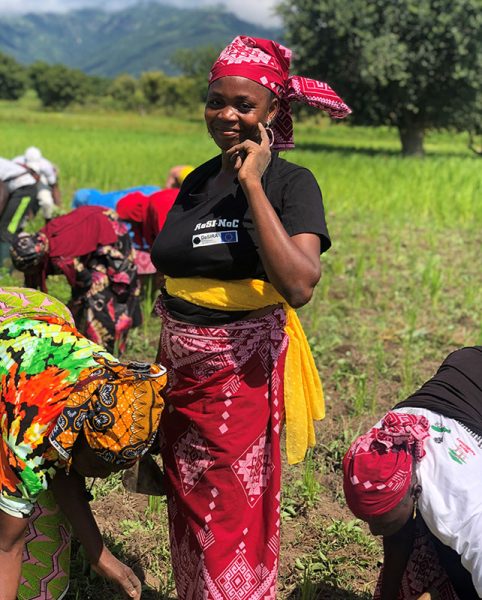
A rural woman in Tchamba, North Cameroon. Photo by Laurianne Mefan/CIFOR-ICRAF
The areas of collaboration between ReSI-NoC and the niche actors were defined using a participatory co-construction approach. They included knowledge-sharing activities, diagnostics, and interventions at niche level. For each area of collaboration, services were provided by ReSI-NoC and by other development players. For more than a year, the project’s researchers have been working to train the actors of the Innovation Niches. Five modules were chosen to strengthen the functional capacities of these actors : organizational capacities, legal statuses, search for financing, development and execution of the action plan and finally-maintaining financial documents.
During a two-day workshop entitled ‘Promoting agrosilvopastoral innovation in Northern Cameroon: What contributions from the ReSI-NoC project?’, ReSI-NoC scientists gave a rundown of actions carried out in the niches. Day one focused on presenting the concept and activities that were carried out in those niches and day two titled “Innovation market” was a live example of how the actors of the niches portrayed their savoir-faire.
“The training of innovation niche players is crucial, and by investing in the training of innovation niche stakeholders, we can create the conditions needed for agricultural innovations to have a lasting impact and contribute to building more resilient and sustainable food systems,” coined Ann Degrande, CIFOR-ICRAF researcher and ReSI-NoC project coordinator during this event.
Local authorities, private sector representatives, the media, and other organizations were all present and enjoyed the display.
“This goes a long way for us to see that the ReSI-NoC left an indelible impact in North Cameroon” cheerly exclaimed Berthe Mewo, Junior scientist CIFOR-ICRAF.
For more information on the project, please contact CIFOR-ICRAF scientist Ann DeGrande: a.degrand@cifor-icraf.org or communications lead Laurianne Mefan: M.Gilda@cifor-icraf.org
Acknowledgements
ReSI-Noc is funded by the European Union and implemented by the Centre for International Forestry Research and World Agroforestry (CIFOR-ICRAF), the French Agricultural Research Centre for International Development (CIRAD), and Cameroon’s Agricultural Research Institute for Development (IRAD).
We want you to share Forests News content, which is licensed under Creative Commons Attribution-NonCommercial-ShareAlike 4.0 International (CC BY-NC-SA 4.0). This means you are free to redistribute our material for non-commercial purposes. All we ask is that you give Forests News appropriate credit and link to the original Forests News content, indicate if changes were made, and distribute your contributions under the same Creative Commons license. You must notify Forests News if you repost, reprint or reuse our materials by contacting forestsnews@cifor-icraf.org.
